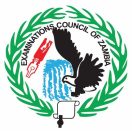INFORMATION AND COMMUNICATION TECHNOLOGY DEPARTMENT
The Information and Communications Technologies (ICT) Department at Examinations of Zambia (ECZ) is responsible for the maintenance and management of the Council’s ICT Infrastructure, Software and Data. The Department also provides ICT Solutions which contributes towards the timely and efficient manner in which the Council achieves its objectives.
The Department is headed by the Director.
The ICT Department is managed in a three (3) tier system:
Software Development
This section is headed by the Manager – ICT Systems. The unit is responsible for the development, maintenance and enhancement of Computer Software used by the ECZ.

ICT Infrastructure
The section is headed by the Manager – ICT Infrastructure and is responsible for the maintenance of the Computer Hardware, Local Area Network, System Software, Databases, as well as the safe storage of Data. The section also provides internal training and general support services to all internal computer users.

ICT Security
Headed by the Manager – ICT Security, this unit is responsible for the security of the Council’s information assets including access to these assets. The unit also provides internal training and general support services with regard to all security issues.
Specific High Level Functions for the Department
- Development of ICT Strategies to support the Council’s Mission and Core Objectives;
- Development of ICT Policy Guidelines, Procedures and Standards to ensure proper and efficient utilization of ICT Resources;
- Advise management and ensure the Council continues to benefit from ICT Solutions in an ever changing technology;
- Planning, designing and development of new software applications, as well as enhancements of existing applications;
- Maintenance, Enhancement and Management of the Council’s ICT Infrastructure (Hardware & Software), to ensure that ICT Services are available to the users;
- Management of Service Level Agreements (SLA) with external ICT Service Providers to ensure that agreed targets and standards are met;
- Provide day to day supports services to the users of ICT Infrastructure, Software and Data;
- Provide internal training to computer users so as to improve computer literacy within the institution;
